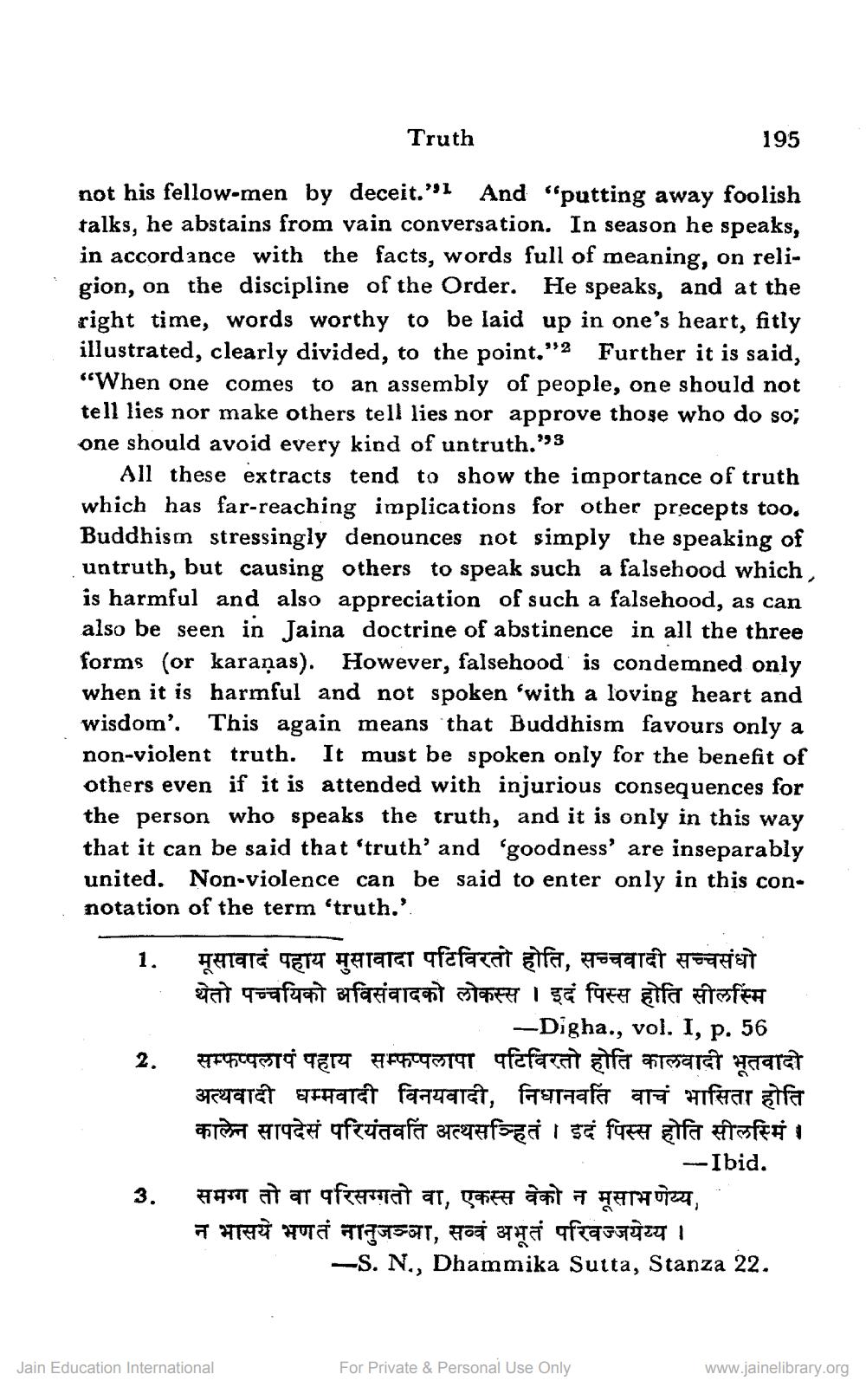________________
Truth
195
not his fellow-men by deceit.". And "putting away foolish talks, he abstains from vain conversation. In season he speaks, in accordance with the facts, words full of meaning, on religion, on the discipline of the Order. He speaks, and at the right time, words worthy to be laid up in one's heart, fitly illustrated, clearly divided, to the point."2 Further it is said, “When one comes to an assembly of people, one should not tell lies nor make others tell lies nor approve those who do so; one should avoid every kind of untruth."
All these extracts tend to show the importance of truth which has far-reaching implications for other precepts too. Buddhism stressingly denounces not simply the speaking of untruth, but causing others to speak such a falsehood which, is harmful and also appreciation of such a falsehood, as can also be seen in Jaina doctrine of abstinence in all the three forms (or karanas). However, falsehood is condemned only when it is harmful and not spoken 'with a loving heart and wisdom'. This again means that Buddhism favours only a non-violent truth. It must be spoken only for the benefit of others even if it is attended with injurious consequences for the person who speaks the truth, and it is only in this way that it can be said that 'truth' and 'goodness' are inseparably united. Non-violence can be said to enter only in this connotation of the term 'truth.'. __ 1. मूसावादं पहाय मुसावादा पटिविरतो होति, सच्चवादी सच्चसंधो थेतो पच्चयिको अविसंवादको लोकस्स । इदं पिस्स होति सीलस्मि
--Digha., vol. I, p. 56 सम्फप्पलापं पहाय सम्फप्पलापा पटिविरतो होति कालवादी भूतवादो अत्थवादी धम्मवादी विनयवादी, निधानवतिं वाचं भासिता होति कालेन सापदेसं परियंतवति अत्थसहितं । इदं पिस्स होति सीलस्मिं ।
-Ibid. 3. 91 at an affermat at, Tapis at 01247, न भासये भणतं नानुजा , सव्वं अभूतं परिवज्जयेय्य ।
-S. N., Dhammika Sutta, Stanza 22.
2.
Jain Education International
For Private & Personal Use Only
www.jainelibrary.org




